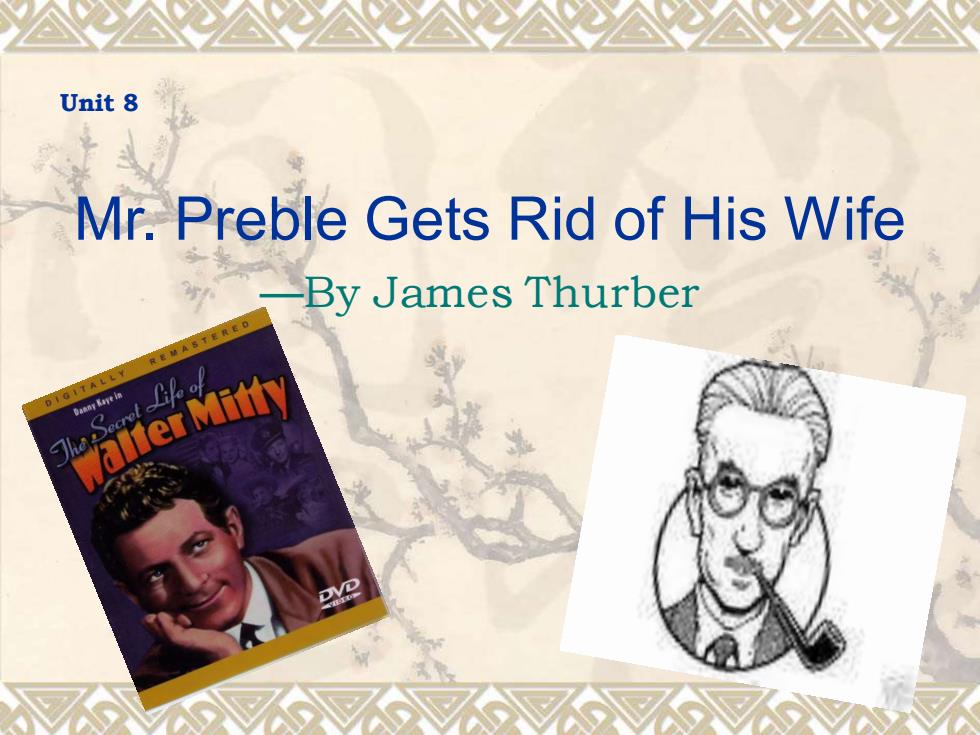
Unit 8 Mr.Preble Gets Rid of His Wife By James Thurber Waiter Mitfy
Mr. Preble Gets Rid of His Wife —By James Thurber Unit 8
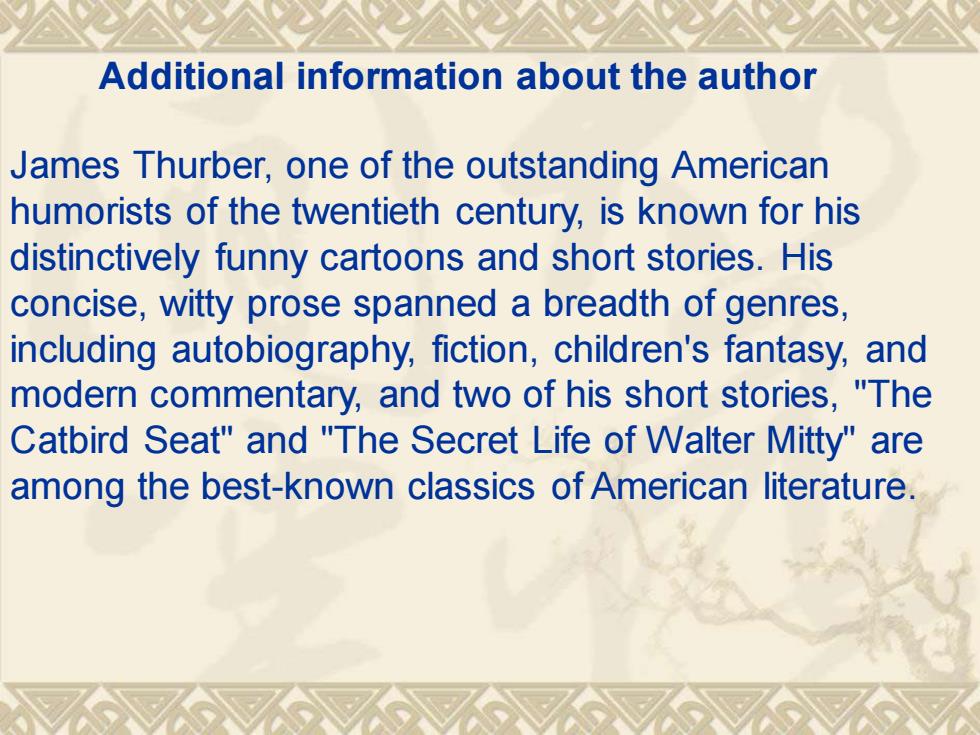
Additional information about the author James Thurber,one of the outstanding American humorists of the twentieth century,is known for his distinctively funny cartoons and short stories.His concise,witty prose spanned a breadth of genres, including autobiography,fiction,children's fantasy,and modern commentary,and two of his short stories,"The Catbird Seat"and "The Secret Life of Walter Mitty"are among the best-known classics of American literature
Additional information about the author James Thurber, one of the outstanding American humorists of the twentieth century, is known for his distinctively funny cartoons and short stories. His concise, witty prose spanned a breadth of genres, including autobiography, fiction, children's fantasy, and modern commentary, and two of his short stories, "The Catbird Seat" and "The Secret Life of Walter Mitty" are among the best-known classics of American literature
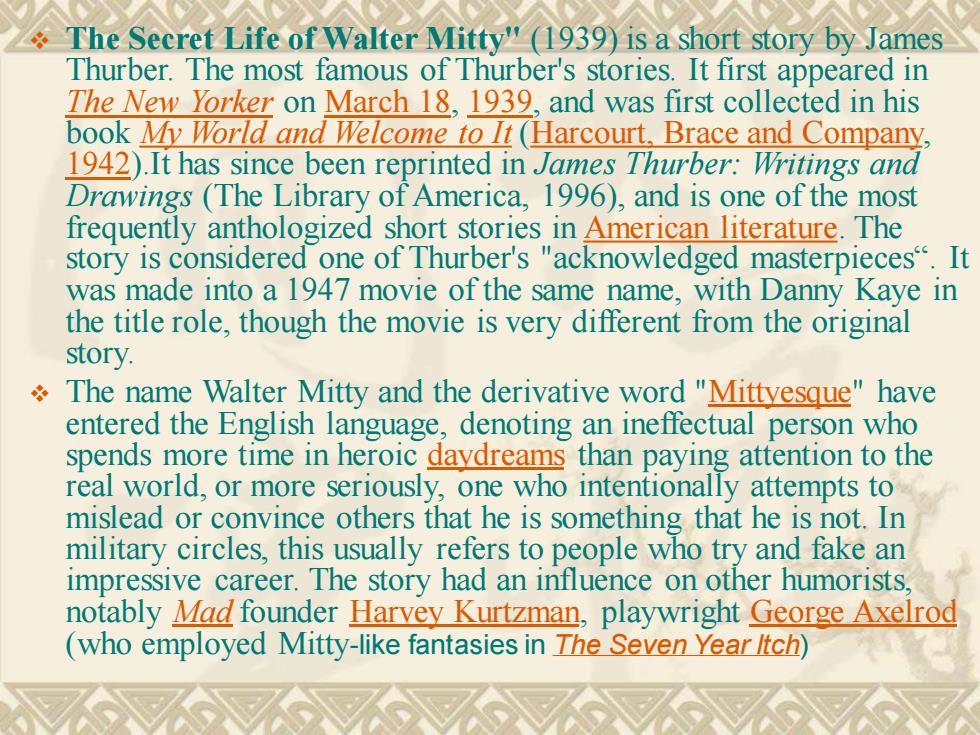
The Secret Life of Walter Mitty"(1939)is a short story by James Thurber.The most famous of Thurber's stories.It first appeared in The New Yorker on March 18,1939,and was first collected in his book My World and Welcome to It (Harcourt,Brace and Company 1942).It has since been reprinted in James Thurber:Writings and Drawings (The Library of America,1996),and is one of the most frequently anthologized short stories in American literature.The story is considered one of Thurber's "acknowledged masterpieces.It was made into a 1947 movie of the same name,with Danny Kaye in the title role,though the movie is very different from the original story. The name Walter Mitty and the derivative word "Mittyesque"have entered the English language,denoting an ineffectual person who spends more time in heroic daydreams than paying attention to the real world,or more seriously,one who intentionally attempts to mislead or convince others that he is something that he is not.In military circles,this usually refers to people who try and fake an impressive career.The story had an influence on other humorists. notably Mad founder Harvey Kurtzman,playwright George Axelrod (who employed Mitty-like fantasies in The Seven Year /tch)
❖ The Secret Life of Walter Mitty" (1939) is a short story by James Thurber. The most famous of Thurber's stories. It first appeared in The New Yorker on March 18, 1939, and was first collected in his book My World and Welcome to It (Harcourt, Brace and Company, 1942).It has since been reprinted in James Thurber: Writings and Drawings (The Library of America, 1996), and is one of the most frequently anthologized short stories in American literature. The story is considered one of Thurber's "acknowledged masterpieces“. It was made into a 1947 movie of the same name, with Danny Kaye in the title role, though the movie is very different from the original story. ❖ The name Walter Mitty and the derivative word "Mittyesque" have entered the English language, denoting an ineffectual person who spends more time in heroic daydreams than paying attention to the real world, or more seriously, one who intentionally attempts to mislead or convince others that he is something that he is not. In military circles, this usually refers to people who try and fake an impressive career. The story had an influence on other humorists, notably Mad founder Harvey Kurtzman, playwright George Axelrod (who employed Mitty-like fantasies in The Seven Year Itch)
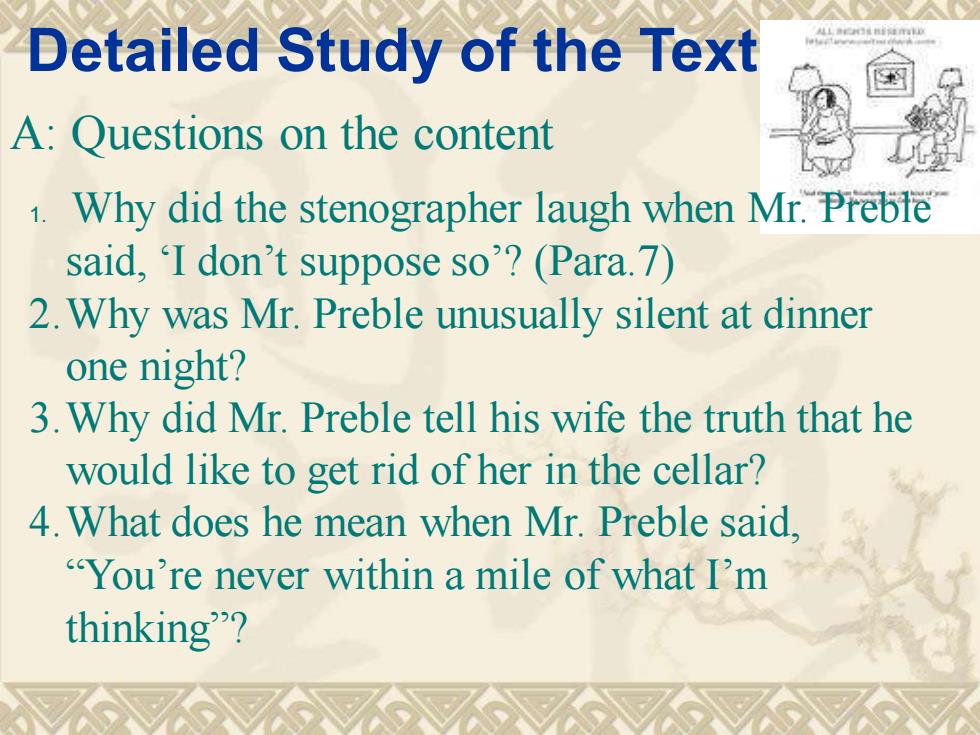
Detailed Study of the Text A:Questions on the content 1.Why did the stenographer laugh when Mr.Preble said,I don't suppose so'?(Para.7) 2.Why was Mr.Preble unusually silent at dinner one night? 3.Why did Mr.Preble tell his wife the truth that he would like to get rid of her in the cellar? 4.What does he mean when Mr.Preble said. You're never within a mile of what I'm thinking'"?
Detailed Study of the Text 1. Why did the stenographer laugh when Mr. Preble said, ‘I don’t suppose so’? (Para.7) 2.Why was Mr. Preble unusually silent at dinner one night? 3.Why did Mr. Preble tell his wife the truth that he would like to get rid of her in the cellar? 4.What does he mean when Mr. Preble said, “You’re never within a mile of what I’m thinking”? A: Questions on the content
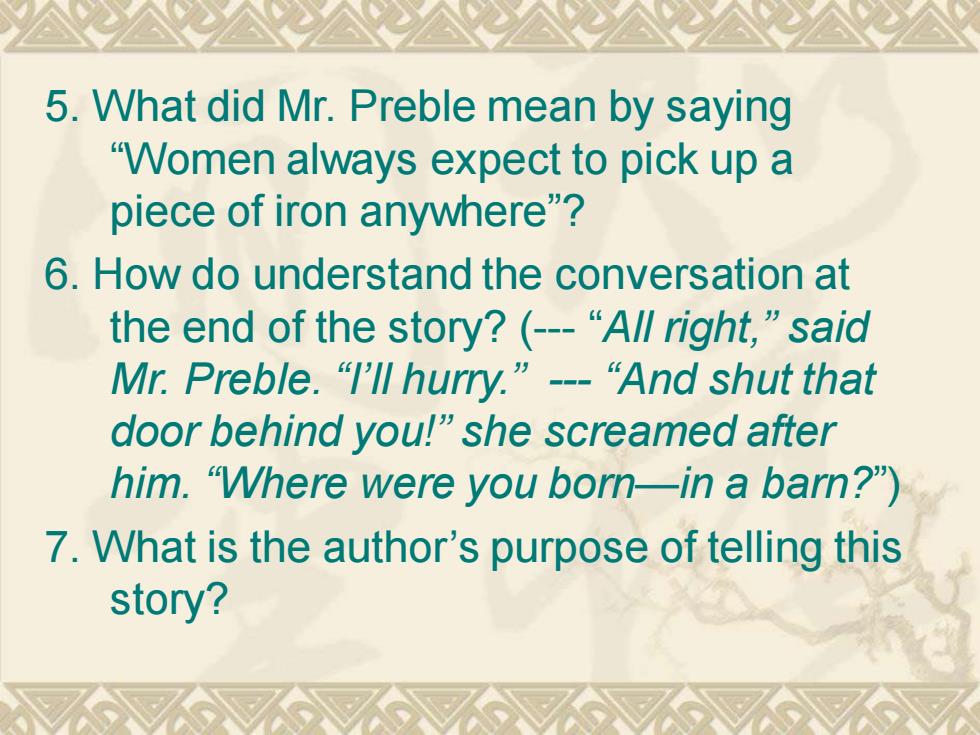
5.What did Mr.Preble mean by saying "Women always expect to pick up a piece of iron anywhere"? 6.How do understand the conversation at the end of the story?(-"All right,"said Mr.Preble."ll hurry,”-“And shut that door behind you!"she screamed after him."Where were you born-in a barn?" 7.What is the author's purpose of telling this story?
5. What did Mr. Preble mean by saying “Women always expect to pick up a piece of iron anywhere”? 6. How do understand the conversation at the end of the story? (- “All right,” said Mr. Preble. “I’ll hurry.” - “And shut that door behind you!” she screamed after him. “Where were you born—in a barn?”) 7. What is the author’s purpose of telling this story?